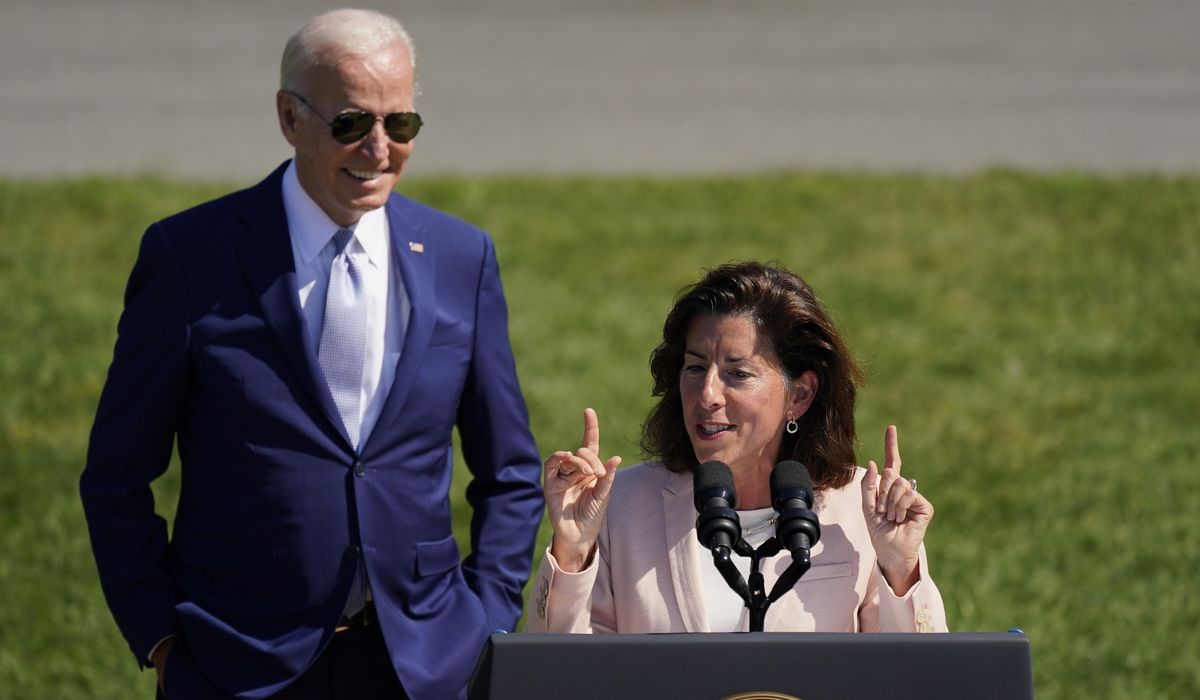President Biden and Commerce Secretary Gina Raimondo on Monday named 31 communities as “Tech Hubs” that will use grant money to spur work in semiconductors, clean energy, quantum computing and other emerging industries, the White House said.
The effort is funded by $500 million approved in Mr. Biden’s marquee CHIPS Act last year and is designed to spread high-tech efforts beyond epicenters like San Francisco and the Northeast.
“For too long, economic growth and opportunity has clustered in a few cities on the coasts. Tech Hubs awardees were selected to represent the full diversity of America, selected from more than 370 applications spanning 49 states and four territories,” the White House said in a fact sheet.
Communities selected to serve as hubs range from New England to politically deep-red places like Oklahoma, where Tulsa Innovation Labs will lead efforts to commercialize autonomous systems for agriculture, pipelines and transportation.
Outside the continental U.S., the PRBio Tech Hub — led by the Puerto Rico Science, Technology and Research Trust — will develop medical devices to detect and treat diseases.
An Intermountain-West Nuclear Energy Tech Hub in Idaho and Wyoming will be led by the Idaho Advanced Energy Consortium. It aims to develop both states as leaders in “small modular reactors (SMR) and advanced nuclear energy to contribute to a clean energy future,” the White House said.
Mr. Biden is highlighting the effort as part of a broader “Bidenomics” pitch. He says he is building the economy from the “bottom up” and creating good-paying jobs while competing with rivals like China.
“These investments will further position U.S. businesses and workers to outcompete the world in the economy of tomorrow and strengthen our national and economic security,” the administration said.
Polling shows voters remain skeptical of his economic performance, however, and the administration is weighed down by economic concerns such as inflation.
The White House said the hubs are positioned so that companies can work with colleges and universities in the area, along with state and local governments. Institutions in each hub will compete for up to $75 million in implementation grants.
While the White House named 31 hubs, some operations stretch across multiple states. The hubs touch 32 states or territories: Alabama, Colorado, Delaware, Florida, Georgia, Idaho, Illinois, Indiana, Kansas, Louisiana, Maine, Maryland, Massachusetts, Minnesota, Missouri, Montana, New Hampshire, Nevada, New Jersey, New York, Oklahoma, Pennsylvania, Rhode Island, South Carolina, Wisconsin, Virginia, Wyoming, Oregon, Ohio, Vermont, Washington and Puerto Rico.
𝗖𝗿𝗲𝗱𝗶𝘁𝘀, 𝗖𝗼𝗽𝘆𝗿𝗶𝗴𝗵𝘁 & 𝗖𝗼𝘂𝗿𝘁𝗲𝘀𝘆: www.washingtontimes.com
𝗙𝗼𝗿 𝗮𝗻𝘆 𝗰𝗼𝗺𝗽𝗹𝗮𝗶𝗻𝘁𝘀 𝗿𝗲𝗴𝗮𝗿𝗱𝗶𝗻𝗴 𝗗𝗠𝗖𝗔,
𝗣𝗹𝗲𝗮𝘀𝗲 𝘀𝗲𝗻𝗱 𝘂𝘀 𝗮𝗻 𝗲𝗺𝗮𝗶𝗹 𝗮𝘁 [email protected]



